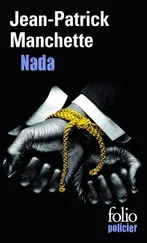Jean-Patrick Manchette - Fatale
Здесь есть возможность читать онлайн «Jean-Patrick Manchette - Fatale» весь текст электронной книги совершенно бесплатно (целиком полную версию без сокращений). В некоторых случаях можно слушать аудио, скачать через торрент в формате fb2 и присутствует краткое содержание. Год выпуска: 2011, ISBN: 2011, Издательство: New York Review Books, Жанр: Криминальный детектив, на английском языке. Описание произведения, (предисловие) а так же отзывы посетителей доступны на портале библиотеки ЛибКат.
- Название:Fatale
- Автор:
- Издательство:New York Review Books
- Жанр:
- Год:2011
- ISBN:978-1-59017-572-9
- Рейтинг книги:5 / 5. Голосов: 1
-
Избранное:Добавить в избранное
- Отзывы:
-
Ваша оценка:
- 100
- 1
- 2
- 3
- 4
- 5
Fatale: краткое содержание, описание и аннотация
Предлагаем к чтению аннотацию, описание, краткое содержание или предисловие (зависит от того, что написал сам автор книги «Fatale»). Если вы не нашли необходимую информацию о книге — напишите в комментариях, мы постараемся отыскать её.
Fatale — читать онлайн бесплатно полную книгу (весь текст) целиком
Ниже представлен текст книги, разбитый по страницам. Система сохранения места последней прочитанной страницы, позволяет с удобством читать онлайн бесплатно книгу «Fatale», без необходимости каждый раз заново искать на чём Вы остановились. Поставьте закладку, и сможете в любой момент перейти на страницу, на которой закончили чтение.
Интервал:
Закладка:
It was ten past one when she got there. Lorque had phoned to say yes just an hour and a half earlier. Aimée grimaced when she saw light coming from the baron’s bedroom on the second floor of the house. Taking care not to let the gravel crunch underfoot, the young woman slipped through the shadows and leaned her bicycle against the wall of the manor. Perfectly still in the cold of the night, she waited without feeling anything. The light went out. Aimée waited for a good quarter of an hour longer. Her teeth chattered now and again, her stomach fluttered, and she was sweating, but she still felt nothing. At this point, she could have gone back to the station, opened all the lockers, taken whatever money was already deposited in them, and vanished on the 4:35 train. She rooted in her bag. She worked her hands slowly into a pair of latex gloves. She walked around the house. Disturbed, the rabbits made muted sounds as they hopped about in their hutches. Aimée approached the back door, meaning to pick the lock, but it was not locked. She switched on a small penlight. Once across the hall, she took a few steps into the living room. The thin beam of light from her torch raked the furniture and the drawers that would have to be opened, broken open if need be, so as to suggest a burglary. Then Aimée went back into the hall, took down the Weatherby Regency, and opened it. It was unloaded. She inserted two 12-gauge shells. Cautiously, she went up the stairs. In the second-floor passageway, the bedroom door stood open. The baron’s snores were audible.
Aimée entered his room, turned on the lights, and trained the Weatherby’s superposed barrels on the baron. At first the light failed to awaken the sleeping man. He lay on his side snoring. His face registered determination.
With the gun still aimed, Aimée continued to contemplate the sleeping baron for thirty or perhaps forty seconds without firing. She frowned. Her lips grew white. She bit them. She seemed to be having difficulty steadying the Weatherby. In exasperation she stamped her foot.
“Fire, for Christ’s sake!” she cried.
The baron opened his eyes. Aimée pulled the trigger. She did not see where the spray of shot landed. The baron, clad in striped pajamas, sprang from the bed with an extraordinary bellow. He really sounded like a cow in distress.
“What a hash! Fuck it all!” Aimée was jumping up and down in frustration.
She emptied the second barrel of the superposed. This time the baron was sprayed on the side of his head. Scarlet blood spattered the white wall, trickled into weblike patterns but was quickly absorbed by the plaster, while the man pirouetted, then fell lengthwise with a dull thud onto the bed, where he crouched on knees and forearms. The baron’s legs stretched out convulsively, then he pulled them up once more.
13
Aimée grimaced, baring her teeth. She let the shotgun fall to the floor, began to pant and then to scream, clutching her head in her hands.
“Stop yelling like that,” said the baron.
Aimée immediately fell silent.
“Did I miss you?” she asked in a wondering voice.
“You might say so, yes.”
On one side of his scalp the baron sported a red carnation of thick vermilion blood trickling ever more slowly into an eye and down a cheek. Aimée picked up the Weatherby and opened it. The empty shells were ejected automatically. The young woman began to reload. Her gloves, or perhaps her nerves, impeded her. She swore between clenched teeth and sat on the floor to reload more easily. Turning away from Aimée, the baron crawled over to the wall. He managed to get to his feet by clinging to a stack of cardboard boxes containing whiskey, canned pâté, and English cigarettes. Then he let himself slide back down to the floor between the wall and the pile of boxes. Aimée closed the reloaded Weatherby.
“You’re not going to finish me off, or are you?” asked the baron.
“I don’t know. I really don’t know.”
Aimée remained silent for a moment, then got to her feet, leaving the gun on the floor.
“I must take care of your wound,” she said.
“Calm down. I’m fine. Stay right where you are. I forbid you to come near me!” cried the baron.
Aimée obeyed.
“It’s strange that I missed you,” she observed. “That has never happened to me before.”
“You mean you’ve killed a lot of people?”
“Seven,” said Aimée.
“I was sure there was something,” said the baron. “I never thought of that. But I was sure you were special.”
“Without counting my husband,” added Aimée. She gave a brief chuckle, tossing her head back.
“Bravo, bravo,” said the baron. He produced a large soiled handkerchief from his pajama pocket and pressed it to his superficial head injury. He winced.
“With you, it’s not working,” said Aimée. She took two steps backwards and shook her head in apparent perplexity. “I don’t know why but it’s not working. I should have known but I just don’t know. My God, it’s such a muddle, what I’m saying. I’m not going to manage this.”
“You do this for the fun of it?”
Aimée shook her head and chuckled again.
“I’m paid for it,” she said proudly.
“Who paid you to kill me?”
Aimée shook her head once more.
“I can’t tell you. A client is a client. A contract is a contract. I won’t tell you a thing.”
“Was it Lorque?” hazarded the baron.
“Lorque and all the others,” said Aimée. “Lindquist. Sinistrat. Rougneux. Etcetera, etcetera. I have twenty big ones waiting for me in the luggage lockers at the station.”
“Twenty big ones?” queried the baron.
“Yes, twenty million old francs. They all paid me. Each one thinks he is the only one. This is my greatest coup. I can retire on it.” Aimée burst into tears and sat down on the floor again. “Have I hurt you?” she asked after a moment.
“I’m all right,” said the baron.
He was ashen.
“You’ve gone all white,” said Aimée.
“The shock. I’ll be fine. I have stopped bleeding. It’s just my scalp. It didn’t even stun me, so obviously there’s no real harm done.”
“I am through,” said Aimée. “Up to now, this was my thing, you see.” She used the familiar second-person pronoun to address the baron. “But of course, you can have no idea.” She began to cry again, but softly now. “The first one, my husband, it was a revelation, you can have no idea. I was an idiot, you see. An engineer. I lived with the guy for seven years. A normal guy. In the suburbs, back there.” Aimée gestured vaguely in the general direction of the Paris metropolitan area, but perhaps she was referring to some other city. “Just a normal guy,” she said again. “Six Ricards a day. He slapped me about. Normal. I didn’t feel anything.”
She nodded as if to convince herself. Then all of a sudden she recounted how one evening she had grabbed the carving knife from an open drawer. Not that it was the first time her husband had abused her. On the contrary, it had been going on for several years. In any case she grabbed the knife, which was in a rectangular cardboard sheath, and plunged it into her husband’s liver without bothering to slip it out of the cardboard. She told the police and the judge that the man had accidentally fallen on the knife. It did not take them long to decide that her account was not implausible. The young judge, who prided himself on his subtlety, found the matter of the cardboard sheath most significant: When you are going to stab someone, he maintained, you bare the blade first. Furthermore, nearly all the fingerprints on the knife were the husband’s, for he was the one who always carved the meat or the bird, and who sharpened the knife. (He used to say that the young woman did not know how to sharpen it.) The husband, meanwhile, offered no version of the incident. This despite the fact that it took him ten hours to die. During that time he appeared to be conscious, but he never uttered a word. He seemed detached, and eventually he died. The young woman was not charged.
Читать дальшеИнтервал:
Закладка:
Похожие книги на «Fatale»
Представляем Вашему вниманию похожие книги на «Fatale» списком для выбора. Мы отобрали схожую по названию и смыслу литературу в надежде предоставить читателям больше вариантов отыскать новые, интересные, ещё непрочитанные произведения.
Обсуждение, отзывы о книге «Fatale» и просто собственные мнения читателей. Оставьте ваши комментарии, напишите, что Вы думаете о произведении, его смысле или главных героях. Укажите что конкретно понравилось, а что нет, и почему Вы так считаете.












